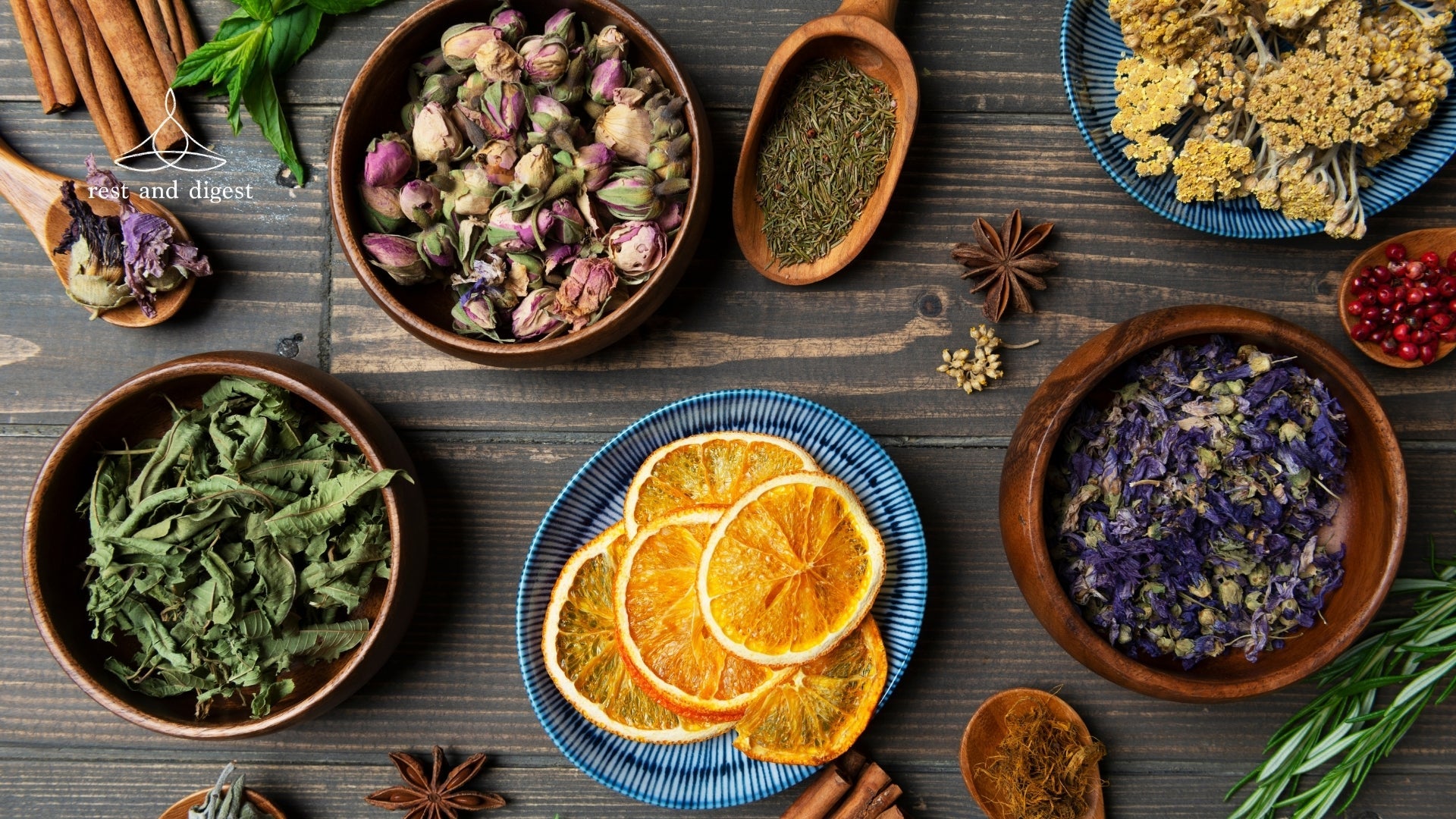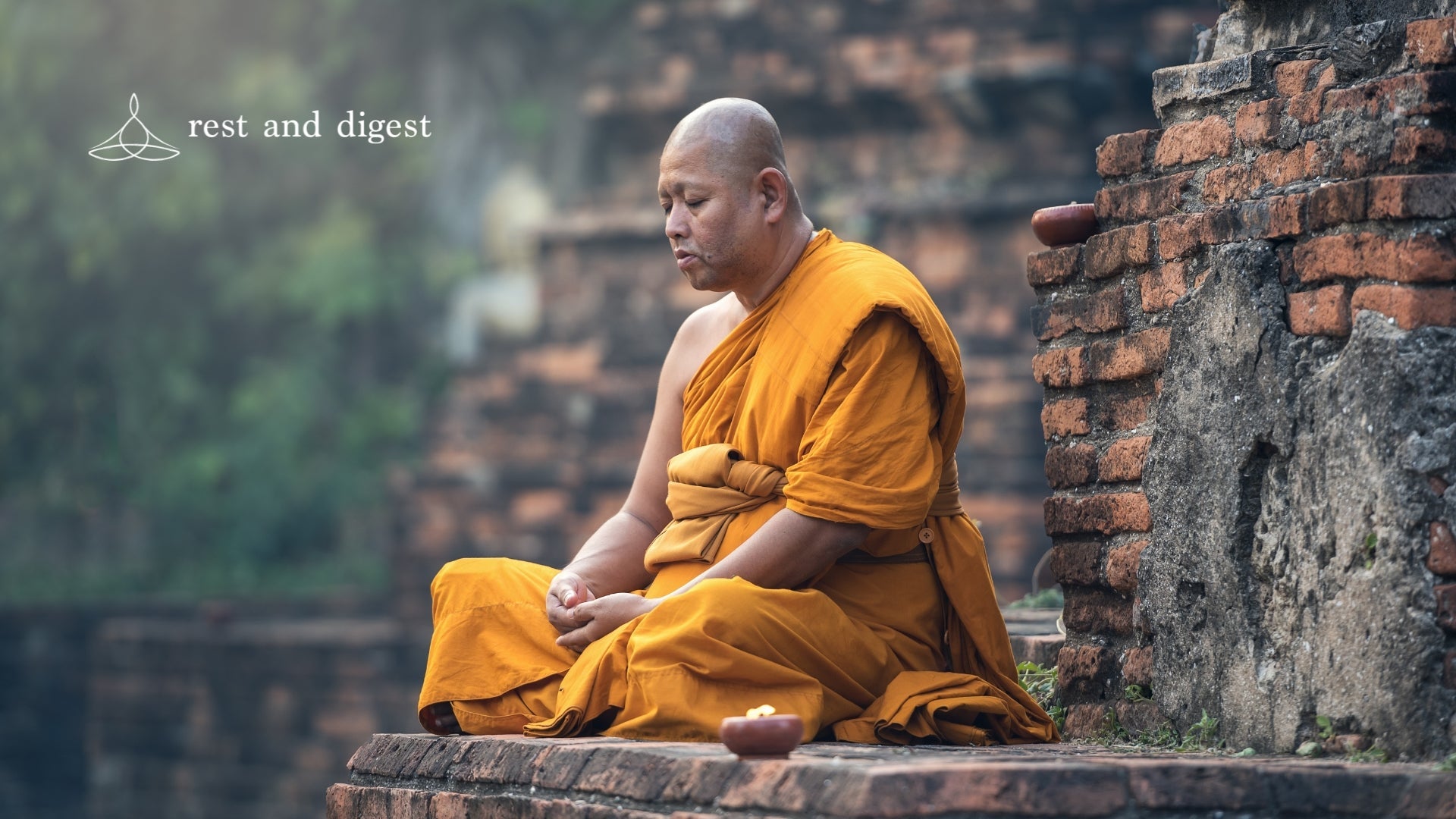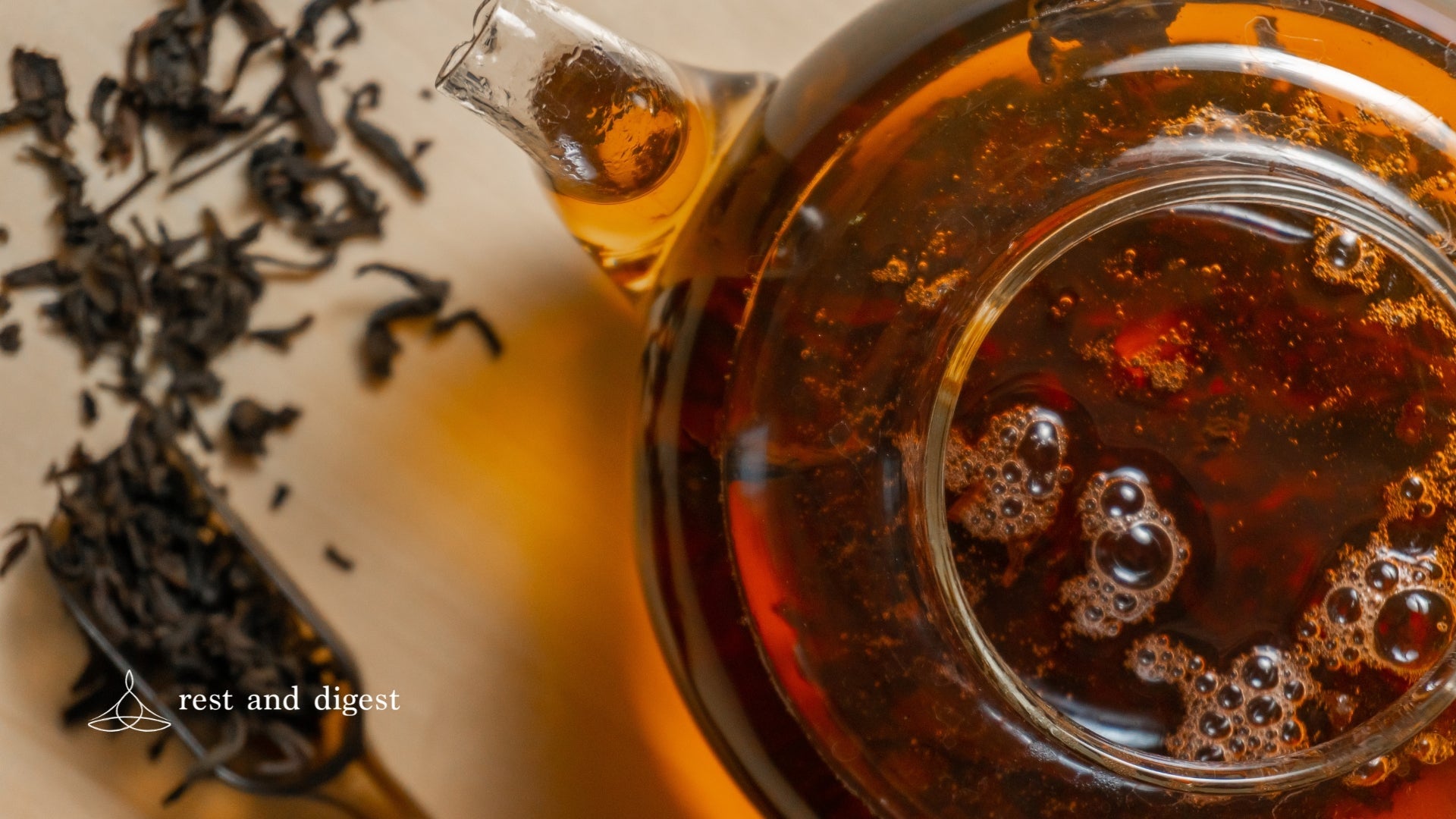
Benefits Of Herbal Tea Ingredients
Herbal tea is a timeless beverage, famous for its diverse flavors and numerous health benefits. Herbal teas are made from various botanical ingredients, unlike the traditional ones that come from the Camellia sinensis plant. These teas are caffeine-free and have a wide range of medicinal uses, which is why many users prefer them.
In this article, we will discuss the different types of ingredients that make up herbal tea and their unique benefits.
Chamomile
Chamomile is one of the most popular herbal tea ingredients and is known for its relaxing properties. It is often used to induce calm and promote natural sleep. Chamomile has active compounds such as apigenin that act on the central nervous system, thereby reducing anxiety and stress levels. To improve the quality and duration of sleep, people with insomnia or those who have problematic nights can consume chamomile tea at night.
Ginger
Ginger is a hot and spicy root widely recognized for its digestive value. Ginger tea can relieve nausea, reduce inflammation, and aid digestion. Gingerol and shogaol are among some of the substances found in ginger that have antioxidant activity and an anti-inflammatory response, making it most useful for people with high levels of indigestion, bloating, gas, etc. Additionally, ginger helps relieve dizziness or morning sickness during pregnancy.
Lemon Grass
Lemongrass is an aromatic herb that imparts a citrus flavor to herbal teas. Due to its antiseptic properties, lemongrass tea is good for detoxifying and cleansing purposes. In addition, it eliminates toxins from the body, thus helping to control cholesterol levels. Additionally, lemongrass can help relieve stress and anxiety because it has calming effects on the mind. Drinking lemongrass tea regularly facilitates metabolism and promotes general well-being.
Rosehip
Rosehip tea, made from wild rose fruits, contains vitamins and antioxidants. For example, it contains high levels of vitamin C, which improves immunity and ensures that skin health is maintained. Joint health and reducing arthritis symptoms are other properties of rosehip tea, which has strong anti-inflammatory potential. Rich in antioxidants, rosehip tea combats oxidative stress, thus facilitating the healthy aging process and curbing the risks related to chronic diseases.
Echinacea
Echinacea is a powerful herb that strengthens the immune system. Drinking echinacea tea can help prevent and shorten the duration of colds and flu as it helps the body produce white blood cells to fight infections. Echinacea tea also has anti-inflammatory properties, relieving pain. Regular consumption strengthens the body's natural defense mechanisms, thereby increasing overall immunity.
Licorice Root
Licorice root is a sweet-tasting substance with medicinal uses often incorporated in many herbal infusions. It was traditionally used to soothe sore throat and cough. Respiratory conditions can also be treated with licorice root tea, thanks to its anti-inflammatory and antiviral properties. Additionally, it can balance adrenal function and reduce stress levels. However, be sure to consume in moderate amounts as excessive consumption can cause hypertension (high blood pressure).
Nettle Leaf
Nettle leaf is a nutrient-rich herb, making it a good component for herbal infusions used in self care. It contains vitamins A, C, K, and some B vitamins as well as minerals such as calcium, iron, and magnesium. Nettle tea can help relieve allergies, reduce inflammation, and support urinary tract health. Among its well-known properties are also blood detoxification and improvement of the condition of the skin. Regular intake of nettle tea improves overall vigor and a sense of well-being.
Spearmint
Spearmint tea is an invigorating herbal infusion known for its digestive benefits, and it is highly refreshing. Spearmint menthol can relieve indigestion, gas, and bloating, and relieve stomach cramps, also reducing nausea. For women with hormonal imbalances, especially symptoms of PCOS or hirsutism, spearmint tea is good for them. Additionally, it helps reduce stress and improves mental clarity.
Lavender
Lavender is an aromatic herb famous for its calming and soothing properties. Lavender tea works wonders when it comes to relieving anxiety, stress, and insomnia. The essential oils in lavender have a calming effect on the nervous system thus giving us a feeling of relaxation. This drink also serves as a painkiller and relieves migraines. Besides, it has anti-inflammatory properties hence very helpful towards healing wounds.
Peppermint
A popular type of herbal tea known for its invigorating flavor which boosts health status peppermint offers multiple health benefits when consumed in the form of a hot beverage. In case you suffer from irritable bowel syndrome (IBS), indigestion, or feeling nauseous; then menthol found in peppermint can provide a cooling effect that can ease those symptoms. It also acts as an effective muscle relaxant thus relieving tension headaches among other things. It also aids respiratory functions by reducing colds and allergies.
Passion Flower
Passionflower is a calming herb used in herbal teas to promote relaxation and reduce anxiety. The brain will be calm when it has levels of GABA boosted by passion flower tea. This type of tea can also be used as a natural sleep aid or remedy for people who are suffering from insomnia. Passionflower tea is also useful in cases of stress, anxiety, and depression. Regular intake of passion flower tea is vital for mental health maintenance and emotional balance.
Valerian Root
Valerian root is a powerful herbal ingredient known for its sedative properties. Valerian root tea is commonly used to treat insomnia and improve sleep quality. It works by increasing GABA levels in the brain, promoting relaxation, and reducing the time it takes to fall asleep. Valerian root tea can also alleviate anxiety, stress, and nervousness. Its calming effects make it a valuable herbal remedy for those experiencing tension and restlessness.
Introducing the Rest and Digest Herbal Tea Collection
Now that you understand the benefits of herbal tea, you might be wondering where to find the best varieties. Fortunately, Rest and Digest has you covered. We offer a rich collection of herbal teas, perfect for enhancing your self care routine.
- Better Tea Hemp Relief Pouch 75g
- Better Tea Gut Feelings Pouch 75g
- Better Tea Anxietea Pouch 60g
- Love Tea Organic Immunity Tea 20 Pyramids
- Love Tea Organic Calming Tea Loose Leaf 50g
- Love Tea Organic Sleep Tea Loose Leaf 60g
FAQs
How do I choose the right herbal tea for my needs?
To choose the right herbal tea, consider your specific health needs and flavor preferences. For relaxation, opt for chamomile or lavender. For digestive issues, try ginger or peppermint. If you need an immune boost, echinacea or rosehip are great choices.
What should I look for on the label when buying herbal tea?
When buying herbal tea, look for labels that indicate the tea is organic, non-GMO, and free from artificial additives. Check for the presence of the specific herbs you are interested in and their concentration. Also, look for certifications that indicate high quality.
Can I mix different types of herbal teas?
Yes, different kinds of herbal teas can be mixed together to form new flavors and combine the benefits of various herbs. Nevertheless, it is important to investigate each herb's qualities so that they work together rather than against each other.
From promoting relaxation and better sleep to improving digestion and boosting the immunity system, the range of ingredients in herbal tea provides numerous health benefits. Each herb brings its unique properties to the blend, providing a natural and holistic approach to health and well-being. By incorporating Rest and Digest herbal teas into your daily self care routine, you can enjoy their soothing flavors and therapeutic effects, contributing to a healthier and more balanced lifestyle.





